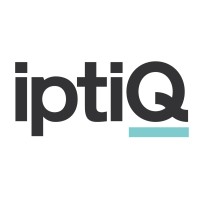Insurtech IQ
On June 4th, McDermott’s InsurTech Summit will host a session on what works and what doesn’t in insurtech, featuring Adrian Jones, Chief of Staff – International and Global Markets at Acrisure, and Michael Halsband, Partner at McDermott Will & Emery.
Till then… iptiQ
iptiQ operated as Swiss Re’s B2B2C business from 2016 until the reinsurer’s recent decision to place parts of the business into run-off. This move comes three years after iptiQ was positioned to become a leading player in its sector—their words, not mine. Swiss Re’s Group CEO, Christian Mumenthaler, noted that today’s market environment is vastly different from when iptiQ was first established. However, the core issue wasn’t just the different environment; iptiQ struggled because it was no different.
On December 8, 2015, Swiss Re announced the establishment of iptiQ in Luxembourg to offer a “full value chain” for distribution partners, whether they are existing clients wanting to change their distribution model or new entrants. For example, a medical insurer client sold nearly 2,000 life policies through iptiQ to its medical insurance book. Similarly, a direct distributor looking to enter the UK market partnered with iptiQ instead of creating an insurance company from scratch. In 18 months, iptiQ sold almost 10,000 policies.
In December 2016, Swiss Re announced that it had significantly expanded its iptiQ business in Europe, more than doubling the number of policies in force. The company also set a goal to establish an iptiQ Individual Life & Health operation and announced receiving the first policy on their books in the US, achieving operational readiness in record time. “On the individual Life & Health side, we have built a white labeling capability under the brand of iptiQ. So this is very much that we offer all an insurance company can offer, but we don’t own distribution,” said Thierry Léger, the former group chief underwriting officer. “So the idea behind is that we focus on what we are best at, we really focus on the whole client engagement parts, the underwriting on the costs and the journey, the manufacturing of products and, obviously, the whole back-end processes. So we concentrate on this and try to be best-in-class at that. And then we engage with the most valuable brands out there, those who have the trust of their clients already. And we think that the combination of both is a very powerful combination and will help us to be very competitive in this very attractive segment of the market.”
In 2017, iptiQ onboarded eight net new partners and off-boarded one. The annual run rate was ~90,000 policies. Around the same time, Mumenthaler mentioned iptiQ and P&C in the same breath but acknowledged his willingness to go far, but not too far: “Just to be clear, we will not own the customer. We don’t think that will ever happen. We don’t want to be the brand name at the front. This will — I don’t think that’s realistic nor desired. But we think we can cover a lot of the value chain through digital means. And we have a huge balance sheet. We have all the knowledge, so we can go very far in the value chain. And so it’s a question of what kind of combinations, what’s [the] most efficient economic combination of partners in this future insurance value chain.”
In 2020, iptiQ onboarded IKEA in Switzerland and Singapore, its 30th partner. “But clearly, this is a relationship we’re going to expand,” said Mumenthaler, and he was right—the relationship expanded to Malaysia and Mexico. He continued to state that Swiss Re serves as the machine provider for IKEA. “We see this IKEA in the lead. I mean they have their customers. They need to say what kind of product they want, how they want to present it, how they want to embed it into their value chain and processes, and we basically provide the software, the machinery, obviously, the balance sheet, also the knowledge around the pricing and all of that.” “So it’s unproven, right?” said Mumenthaler. “I don’t want to raise too high expectations. This is, I could say, a new model.” This is where Mumenthaler wasn’t quite right. The model has been proven as non-insurance brands can sell insurance (see JLR), just as non-insurance professionals can sell insurance (see Primerica), just as anyone with a telephone can sell insurance (see Assurance IQ).
JLR
Carmaker JLR launched its insurance offering in Oct 2023. In 7 months, it delivered 37,500 quotes to clients. That’s 5,357 insurance quotes a month. 2023 JLR UK sales totaled 73,041. That’s 6,086 cars sold a month in the UK. Regardless of the attachment rate, JLR has proved a relevant offering when comparing quotes issued to new cars sold. Now, back to attachment rates. The Apple Card—fully integrated with zero fees—boasts a 10% attachment rate, serving 12 million of the 125 million iPhone users in the US, which is considered ‘excellent.’ While embedded insurance is often hyped, the opposite of hype isn’t inaction.
Primerica
Most insurance companies had and still have two main problems on the front end – distribution and product differentiation. Art Williams Jr. understood these challenges well, and in 1977, he founded A.L. Williams, the precursor to Primerica. Aside from pioneering the concept of “buy term (life insurance) and invest the difference” at times when cash value life insurance was the norm, Art also introduced a new kind of insurance salesforce – one that is mostly made of part-time agents. He believed that hiring “good people” to sell life insurance full-time was not possible. “I’ve got mayors, policemen, teachers, dentists and newspaper reporters – the kind of people who would throw up before selling typical life insurance,” said Williams.
Assurance IQ
Assurance entered the market in 2016 and partnered with iptiQ, launching its life agency business in January 2017 with iptiQ’s Final Expense and Level Term products. Since then, this partnership has provided protection for over 300,000 families, according to a case study by iptiQ. For comparison, Primerica sold more policies in 2023 alone. In 2021, Assurance launched a P&C insurance agency business using the platform from iptiQ’s partner, Bindable. By the end of the year, iptiQ had over 1.6 million in-force policies and worked with 51 distribution partners. In 2023, iptiQ continued to grow, with gross premiums written reaching $1.1 billion, a 29.3% increase from 2022, mainly driven by the EMEA regions. Its in-force policies grew to 2.7 million from 2.2 million the previous year. Despite this growth, iptiQ reported a loss before interest and tax of $247 million, an improvement from the $362 million loss in 2022. The company remained on track to achieve its break-even target by 2025. Notably, Assurance IQ, purchased by Prudential for $2.4 billion in 2019, has lost over $381 million since the acquisition.
Bird’s-Eye View
iptiQ’s US existence was rooted in Assurance IQ, which originally modeled its workforce after Primerica. Out of the two, only one remained owner-operated. All in all, many incumbents and insurtechs alike have sought to close the protection gap. If this gap exists intentionally, it may suggest that major insurers avoid this business for a reason. In other cases, remember that technology alone doesn’t sell insurance—attention and regulation (whether a product is mandatory) do.




